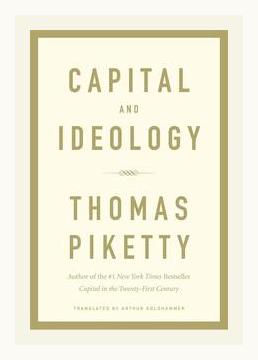Finance, Economics, Trading, InvestingWealth and Inequality
Summary of Capital and Ideology by Thomas Piketty
Introduction
In Capital and Ideology, Thomas Piketty extends his groundbreaking analysis from Capital in the Twenty-First Century, offering a comprehensive exploration of the relationship between capitalism and ideology. The book examines how ideologies shape economic systems and contribute to social inequalities. Piketty argues that economic disparities are not just the result of market forces but are deeply intertwined with the political and ideological frameworks that societies adopt. Through historical and comparative analysis, Piketty challenges readers to rethink the principles guiding economic and social structures.
Historical Context and Key Themes
Historical Evolution of Inequality
Piketty begins by tracing the historical evolution of inequality from the pre-modern era to contemporary times. He outlines how different societies—ranging from ancient regimes to modern democracies—have grappled with issues of wealth and power. The book emphasizes that inequality is not a natural state but a product of historical and ideological processes.
Example 1: Piketty discusses the transition from feudal societies to capitalist economies, highlighting how ideologies shifted to justify new forms of economic and social hierarchies. For instance, the transition from aristocratic to capitalist ideologies involved significant changes in how wealth and power were perceived and legitimized.
Quote 1: “Ideologies are instruments of political struggle; they shape how we interpret and justify the distribution of wealth and power.” This quote underscores Piketty’s central argument that ideologies are crucial in shaping economic systems and justifying inequalities.
Capitalism and Its Discontents
A significant portion of the book critiques contemporary capitalism, focusing on how it perpetuates inequalities. Piketty examines the role of economic policies, wealth accumulation, and the influence of the wealthy on political processes. He argues that modern capitalism, while generating significant wealth, has also led to a concentration of resources and power that undermines democratic values.
Example 2: Piketty critiques the rise of neoliberal policies in the late 20th century, which, according to him, exacerbated economic disparities. He discusses how deregulation and tax cuts for the wealthy contributed to increasing wealth gaps and eroded public services.
Quote 2: “The market does not spontaneously create fairness or equality; it requires careful regulation and political will to ensure that its benefits are broadly shared.” This quote reflects Piketty’s belief that without deliberate intervention, capitalism tends to generate inequality.
Ideology and Policy Solutions
In the latter part of the book, Piketty explores potential solutions to the issues raised. He proposes a range of policy measures aimed at addressing economic inequality, including progressive taxation, wealth redistribution, and enhanced public services. Piketty emphasizes that these solutions are not merely technical fixes but require a shift in ideological perspectives.
Example 3: Piketty advocates for a global tax on wealth to address the growing disparities between the ultra-wealthy and the rest of the population. He argues that such a tax could help fund public services and reduce inequality on a global scale.
Quote 3: “A new form of international solidarity is required to address the challenges of global inequality and ensure that all citizens have access to basic rights and opportunities.” This quote highlights Piketty’s call for international cooperation to tackle economic disparities.
Conclusion
Capital and Ideology offers a profound critique of contemporary capitalism and its ideological underpinnings. Piketty’s analysis demonstrates that economic inequalities are deeply rooted in historical and ideological contexts, and addressing them requires more than technical solutions—it necessitates a fundamental shift in how we think about wealth and power. The book has received widespread acclaim for its rigorous analysis and ambitious proposals, making it a critical contribution to discussions about economic justice and political economy.
Piketty’s work is particularly relevant in today’s context, as discussions about economic inequality and the role of capitalism in society continue to gain prominence. By challenging existing ideologies and proposing actionable solutions, Capital and Ideology invites readers to reconsider how economic systems can be reformed to promote a more equitable and just society.
